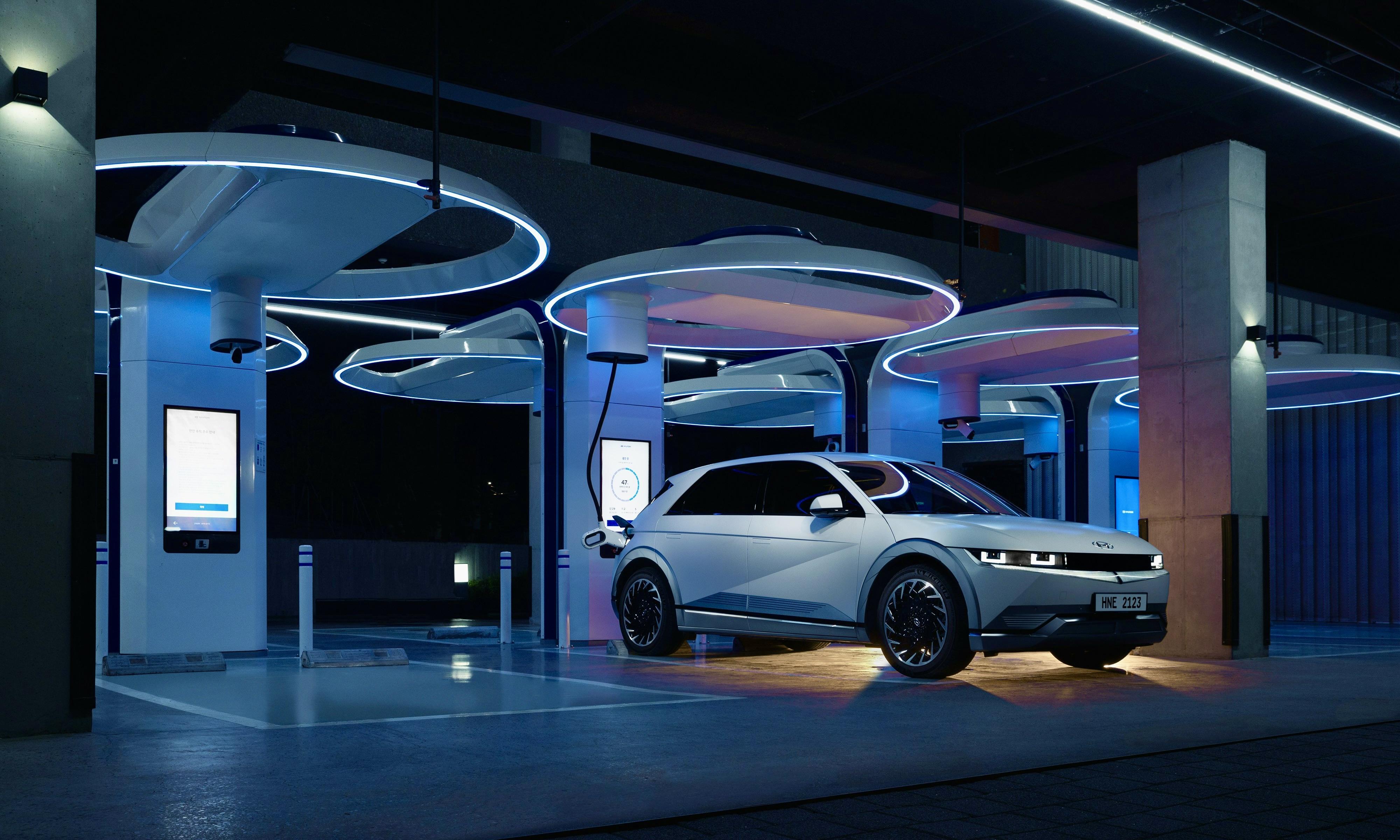South Korea has positively received the U.S. extension of tax credits for electric vehicles (EVs) incorporating Chinese graphite. This critical decision supports Seoul’s strategy to dominate the American EV market.
This move comes as part of the broader Inflation Reduction Act, focusing on maintaining a competitive supply chain amidst global supply constraints.
South Korea Responds to US EV Tax Credit Extension
According to Reuters, South Korea welcomed Wednesday the U.S. decision to extend until 2026 the eligibility of manufacturers for EV tax credits for vehicles containing Chinese graphite.
South Korea's Industry Ministry has strategically responded to the U.S. decision, emphasizing securing essential battery materials. This move aims to ensure domestic automakers and battery producers can maintain their competitiveness in the American market, which aligns with the Inflation Reduction Act's standards.
Challenges of Diversifying Graphite Supply Chain
"In the case of graphite, it was difficult to diversify the supply chain in a short period of time, making it difficult to receive U.S. EV tax credits for batteries ... we have been actively consulting with the U.S. government, and our request (of extension of graphite use) was reflected in the final rules," according to a statement from the industry ministry.
With the new rules, people who buy EVs that use Chinese graphite can now get tax credits of up to $7,500 until 2026.
The ministry has underscored its commitment to the nation's EV industry by announcing significant financial assistance of 9.7 trillion won ($7.11 billion). This financial aid aims to bolster the industry's efforts to ensure an independent and competitive supply chain, demonstrating South Korea's determination to maintain its position in the global EV market.
According to the U.S. Treasury Department, automakers have until 2027 to reduce their use of hard-to-find minerals, such as graphite, found in anode materials, and critical minerals found in electrolyte salts, binders, and additives.
Future Plans for South Korea's EV Market
The Industry Ministry stated that it will assist businesses in fulfilling obligations, such as submitting plans to the United States detailing how they will diversify their graphite supply starting in 2027 and doing "accurate calculations" to determine the prices of battery minerals to qualify for tax credits.
As per The Korea Herald, China is the third-largest natural graphite producer in the world, with further supplies being imported for processing from Mozambique and Madagascar.
Despite the significant environmental impact associated with its extraction and processing, it controls over 99% of the global production of spherical graphite, also known as battery-grade graphite, due to its advanced refining capabilities and lower-cost production.
Due to this circumstance, other nations have been dissuaded from entering the market despite the United States' efforts to encourage supply chain diversification.
Photo: Hyundai Motor Group/Unsplash



 Jensen Huang Urges Taiwan Suppliers to Boost AI Chip Production Amid Surging Demand
Jensen Huang Urges Taiwan Suppliers to Boost AI Chip Production Amid Surging Demand  Elon Musk’s SpaceX Acquires xAI in Historic Deal Uniting Space and Artificial Intelligence
Elon Musk’s SpaceX Acquires xAI in Historic Deal Uniting Space and Artificial Intelligence  Sony Q3 Profit Jumps on Gaming and Image Sensors, Full-Year Outlook Raised
Sony Q3 Profit Jumps on Gaming and Image Sensors, Full-Year Outlook Raised  Uber Ordered to Pay $8.5 Million in Bellwether Sexual Assault Lawsuit
Uber Ordered to Pay $8.5 Million in Bellwether Sexual Assault Lawsuit  Nvidia CEO Jensen Huang Says AI Investment Boom Is Just Beginning as NVDA Shares Surge
Nvidia CEO Jensen Huang Says AI Investment Boom Is Just Beginning as NVDA Shares Surge  Tencent Shares Slide After WeChat Restricts YuanBao AI Promotional Links
Tencent Shares Slide After WeChat Restricts YuanBao AI Promotional Links  Nvidia Confirms Major OpenAI Investment Amid AI Funding Race
Nvidia Confirms Major OpenAI Investment Amid AI Funding Race  OpenAI Expands Enterprise AI Strategy With Major Hiring Push Ahead of New Business Offering
OpenAI Expands Enterprise AI Strategy With Major Hiring Push Ahead of New Business Offering  SpaceX Pushes for Early Stock Index Inclusion Ahead of Potential Record-Breaking IPO
SpaceX Pushes for Early Stock Index Inclusion Ahead of Potential Record-Breaking IPO  SpaceX Prioritizes Moon Mission Before Mars as Starship Development Accelerates
SpaceX Prioritizes Moon Mission Before Mars as Starship Development Accelerates  Amazon Stock Rebounds After Earnings as $200B Capex Plan Sparks AI Spending Debate
Amazon Stock Rebounds After Earnings as $200B Capex Plan Sparks AI Spending Debate  SpaceX Updates Starlink Privacy Policy to Allow AI Training as xAI Merger Talks and IPO Loom
SpaceX Updates Starlink Privacy Policy to Allow AI Training as xAI Merger Talks and IPO Loom  Nvidia, ByteDance, and the U.S.-China AI Chip Standoff Over H200 Exports
Nvidia, ByteDance, and the U.S.-China AI Chip Standoff Over H200 Exports  Once Upon a Farm Raises Nearly $198 Million in IPO, Valued at Over $724 Million
Once Upon a Farm Raises Nearly $198 Million in IPO, Valued at Over $724 Million  Alphabet’s Massive AI Spending Surge Signals Confidence in Google’s Growth Engine
Alphabet’s Massive AI Spending Surge Signals Confidence in Google’s Growth Engine  Global PC Makers Eye Chinese Memory Chip Suppliers Amid Ongoing Supply Crunch
Global PC Makers Eye Chinese Memory Chip Suppliers Amid Ongoing Supply Crunch  Palantir Stock Jumps After Strong Q4 Earnings Beat and Upbeat 2026 Revenue Forecast
Palantir Stock Jumps After Strong Q4 Earnings Beat and Upbeat 2026 Revenue Forecast 






























